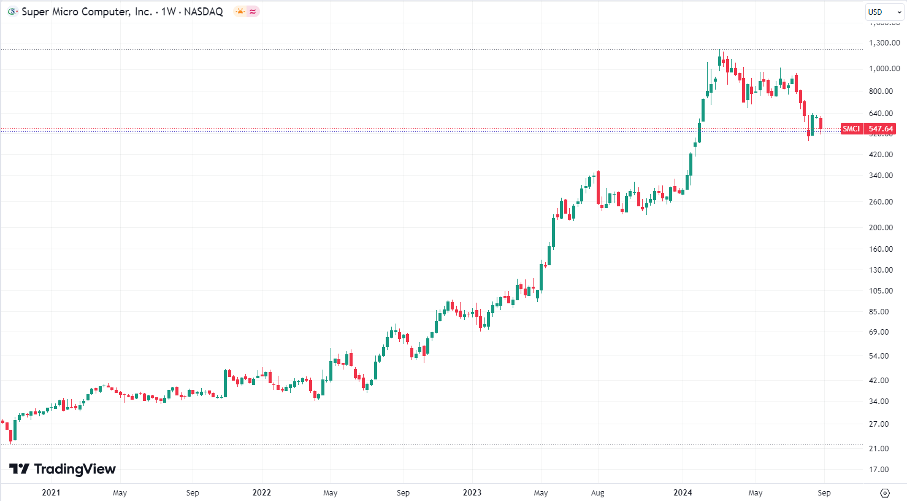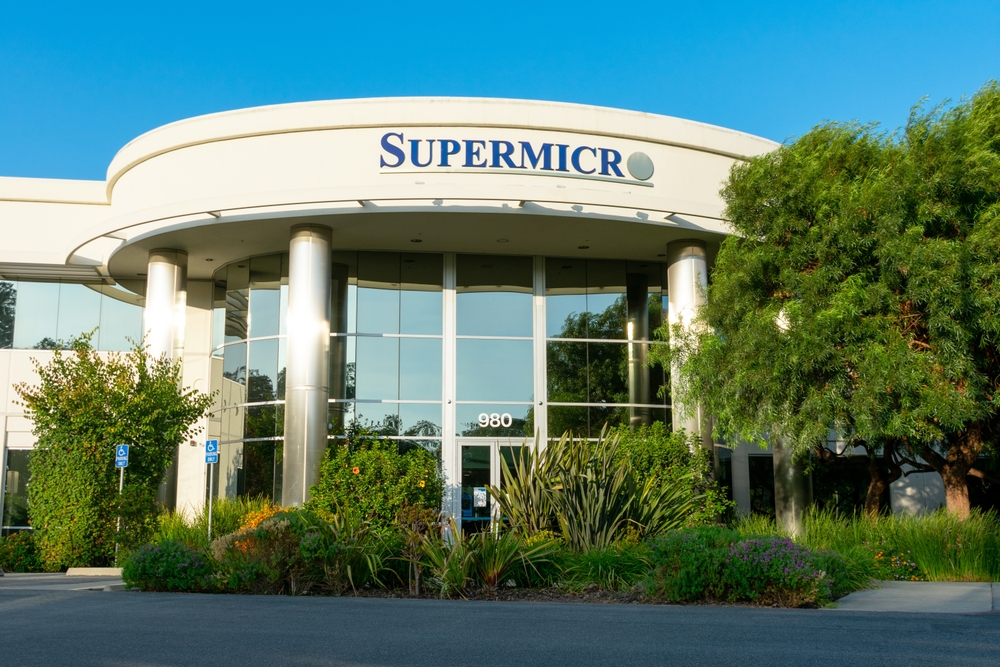Super Micro Computer Inc (NASDAQ: SMCI), a $35 billion server maker based in Silicon Valley, has recently enjoyed a surge of interest in artificial intelligence (AI), but a three-month investigation by Hindenburg Research has revealed serious concerns about the firm's financial practices, undisclosed related-party transactions, and potential sanctions violations. These issues are likely to have a significant impact on investors as they indicate ongoing governance and compliance problems [1].

The stock performance of Super Micro Computer, Inc. over the past 5 years. Source: tradingview.com
History of regulatory violations and allegations of questionable practices
The technology player has been under scrutiny for several years regarding its accounting practices. In 2018, the company was delisted from the Nasdaq exchange for failing to file financial statements, while in August 2020, it agreed to a $17.5 million settlement with the U.S. Securities and Exchange Commission (SEC) in connection with widespread accounting rule violations. These violations included misreported revenue of more than US$200 million and understated costs, which artificially inflated sales, revenue and profit margins. Despite the settlement, the Hindenburg report states that the company resumed questionable accounting practices, such as misreporting revenue and circumventing internal controls, within three months.
Rehiring executives implicated in past scandals
The report highlights that shortly after the settlement with the SEC, the company began rehiring key executives who had previously been involved in accounting scandals. The lawsuit, filed in April 2024, alleges that the company waited only three months after the settlement before resuming improper revenue recognition and incomplete sales practices. Former employees have also raised concerns that the company culture has not improved, with one former senior sales executive stating that behavior has remained largely unchanged since the 2018 delisting incident.
Concerns about related party transactions
Hindenburg Research further points to serious risks associated with both disclosed and undisclosed related party transactions. In particular, Super Micro's CEO, Charles Liang, has family members who control suppliers Ablecom and Compuware. These entities have raised nearly $983 million over the past three years, with most of their business transactions exclusively related to Super Micro. This circular business relationship raises concerns about revenue reporting and financial transparency. In addition, there are other undisclosed related parties, such as entities in Taiwan and Hong Kong controlled by the CEO's brothers, that appear to be engaging in transactions that have not been properly disclosed to shareholders.
Potential violation of US sanctions
The report also raises concerns about potential violations of U.S. sanctions. Although Super Micro has publicly claimed that it stopped all sales to Russia after the invasion of Ukraine and that it has not recorded revenue from the region, the report suggests that exports to Russia have actually tripled since the invasion. The investigation found that nearly two-thirds of these exports were for high-priority components that could be used for military purposes. The use of newly established shell companies in Turkey and Hong Kong to facilitate these exports further complicates the company's compliance stance.
Distortion of market position due to competition and quality problems
Super Micro's competitive position also appears to be weakening. Key partners such as Nvidia, CoreWeave and Tesla have moved away from the company, choosing rival parties such as Dell for their server and infrastructure needs. Customer service issues and product reliability concerns have also damaged their reputation. Several major customers have reported high failure rates and unsatisfactory service, forcing them to switch to more reliable providers such as HPE and the aforementioned Dell.
Conclusion for investors
The findings from Hindenburg Research present a troubling picture for Super Micro Computer Inc. and point to systemic problems related to governance, compliance and business practices. These concerns, coupled with deteriorating customer relationships and intense competition, suggest that the company's future growth and stability may be in jeopardy. As a result, investors should approach SMCI's stock with caution given the significant uncertainties and potential liabilities that could affect the company's valuation and market position over the long term. [2]
[1,2] Forward-looking statements are based on assumptions and current expectations, which may be inaccurate, or on the current economic environment, which may change. Such statements are not guarantees of future performance. They involve risks and other uncertainties that are difficult to predict. Results may differ materially from those expressed or implied by any forward-looking statements.


